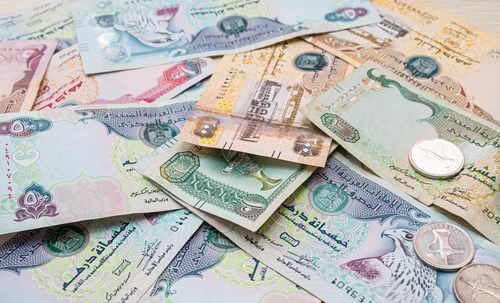
Banking Analyst Programme in Dubai: Aligning Accounting & Finance Careers
In the 21st century, accounting and finance have become even more critical as businesses have become increasingly complex and globalised. As a result, the industry has been forced to adapt to changing technologies and business practices.
Dubai has established itself as a leading financial centre in the Middle East, with a rapidly growing accounting, finance, and banking sector. The city's strategic location, strong regulatory framework, and investment-friendly policies have attracted global financial institutions, making it an ideal hub for banking and finance operations in the region.
The accounting and finance sector in Dubai has seen significant growth over the past few years, with a focus on attracting more international businesses. Dubai's banking sector is also expanding rapidly, making it easier for businesses to expand and grow in the region.
“The UAE is among the top seven financial hubs in the world. Its banking sector assets grew by 12 times from $75 billion in 2000 to more than $900 billion in 2022 (an increase to more than 250 per cent of the nation’s nominal GDP from 70 per cent in 2000)”, stated Abdulaziz Al Ghurair, chairman of UAE Banks Federation.
Let’s dig into more details and understand what accounting and finance are, the differences between the two and much more!
What is Accounting?
Accounting is a process of recording, classifying, summarising, analysing, and interpreting financial transactions to provide relevant and reliable financial information to its stakeholders. It involves collecting, organising, and presenting financial data to enable effective decision-making by management, investors, creditors, and other users of financial statements.
The primary objective of accounting is to provide accurate and timely financial information to stakeholders. This helps to accurately evaluate financial performance, make informed decisions, and assess the financial health of the business. It is essential for compliance with regulatory requirements, such as tax laws and financial reporting standards.
The scope for professionals seeking to make a career in the accounting industry is vast and diverse. The roles and responsibilities of an accountant may vary depending on the size and complexity of the organisation, the industry, and the specific job position. Some of the most popular career paths in accounting are:
- Public accountants: Work for accounting firms that include accounting, auditing, tax, and consulting services to clients.
- Corporate accountants: Prepare financial statements, manage budgets, analyse financial data, and develop financial strategies.
- Government accountants: Work for federal, state, or local governments and perform financial audits, prepare financial reports, and ensure compliance with regulatory requirements.
- Forensic accountants: Work with law enforcement agencies and attorneys to investigate financial crimes such as fraud, embezzlement, and money laundering.
- Education and research: Make a career in academia and research by teaching accounting courses or conducting research.
What is Finance?

Finance is a broad field dealing with managing money, investments, and financial assets. This also involves making financial decisions necessary for business growth and success. Finance professionals work in a variety of roles across different industries, such as banking, investment management, accounting, insurance, and corporate finance.
The scope of the finance sector is vast, and there are several opportunities for professionals seeking to build a career in this field. Some of the most popular career paths in finance are:
- Investment Bankers: Investment bankers advise companies on how to raise capital through mergers and acquisitions, IPOs, and other financial transactions.
- Corporate Finance: Corporate finance professionals manage a company's financial activities, such as budgeting, forecasting, and financial analysis. They also make investment decisions on behalf of the company and manage its cash flow.
- Financial Planning and Analysis: Financial analysts help companies make informed decisions by analysing financial data and creating financial models. They also prepare financial reports, forecasts, and budgets.
- Risk Management: Risk managers are responsible for identifying and managing risks that could affect a company's financial health. They create risk management strategies and monitor market trends to identify potential threats.
- Wealth Management: Wealth managers work with high-net-worth individuals and families to manage their investments and provide financial planning services.
The accounting and finance sector offers excellent opportunities for career advancement and outstanding salaries. Professionals from this field are in high demand, and the job market is expected to grow exponentially. However, the competition for top jobs can be intense, and candidates must have the right skills, education, and experience to succeed.
Strong analytical skills, attention to detail, and the ability to work under pressure are key to success in the finance sector. A degree in finance, accounting, economics, or a related field is typically required to enter this field, and many employers also require professional certifications such as ACCA, CFA, CPA, or FRM.
Boost your banking career in Dubai
Difference Between Accounting and Finance
Accounting and finance are two different fields that are often used interchangeably. However, there are several differences between them based on different factors.
| Factor of Comparison | Accounting | Finance |
| Definition |
|
|
| Scope |
|
|
| Focus |
|
|
| Objective |
|
|
| Tools & Techniques |
|
|
What you gain after Accounting and Finance course
After an accounting and finance course, students can also pursue higher education in related field. Some of the most common ones include a Bachelor’s degree and a Master’s degree. Here are some benefits you’ll gain after the accounting and Finance courses:
- Increased Earning Potential: Accounting & Finance graduates typically earn higher salaries than those without an advanced degree.
- Extensive Career Opportunities: Accounting & Finance courses open doors to various leadership roles in accounting and finance, including management, consulting, and executive-level positions.
- Enhanced Business Acumen: Accounting & Finance courses provide students with an outstanding scope of today’s modern business landscape. This helps accounting and finance professionals to understand broader contexts of operations better.
- Networking Opportunities: Accounting & Finance courses often provide opportunities to connect with industry professionals and build a strong professional network, which can be beneficial for career advancement and job opportunities.
- Specialised Knowledge and Skills: Accounting & Finance courses provide students with advanced knowledge and specialised skills that can help them excel in their chosen field. They cover a broad range of topics related to investment management, including ethics, economics, financial reporting and analysis, corporate finance and many more. The course gives students a deep understanding of the investment industry, enabling them to make informed decisions and solve complex investment problems.
- Professional Certification: Many courses in Accounting or Finance help students meet the requirements for professional certification, such as the Certified Public Accountant (CPA) or Certified Financial Planner (CFP) certification and Association of Chartered Certified Accountants (ACCA) Programme.
- Global Recognition: Many Accounting and Finance courses are recognised worldwide, making it a valuable credential for finance professionals seeking to work in different countries and regions.
- Professional Network: Students who study accounting and finance courses come across individuals who belong to a global community of investment professionals. This provides students an access to valuable networking opportunities, job leads, and professional development resources.
- Strategic Focus: There are many accounting and finance certifications that put emphasis on strategic thinking, enabling students to become better professionals & contribute to the overall business strategy and decision-making process.
- Competitive Advantage: Many courses provide a competitive advantage, as students gain a high level of understanding and technical expertise in the related industry during the course.
Global Investment Banking Analyst Programme from GBS Dubai

If you are someone looking to opt for an investment analyst programme in Dubai, GBS Dubai is the right place to head. They offer a Global Investment Banking Analyst programme in Dubai that helps students kickstart a career in the accounting and finance sector. This banking analyst programme is an intensive four-week course. It allows students and experienced professionals to gain further insights into global investment banking, including ideas to develop investment strategies.
During the four-week banking analyst programme, students learn many aspects of global investment banking, including financial modelling, financial statements, valuation, transaction premiums and buyouts. The banking analyst programme offers specialist skills and in-demand knowledge of the global banking sector. After completing this banking analyst programme, students are in a strong position to level up their global investment banking careers.
The basic skills learnt during the investment analyst programme in Dubai include:
- Communication
- Teamwork
- Research skills
- Portfolio analysis & management
- Analytical skills
- Financial statement analysis
- Risk management
- Asset allocation
- Credit analysis
The investment analyst programme in Dubai leads students to career paths such as:
- Investment Analyst
- Credit analyst
- Banker
- Market analyst
- Banking Strategist
- Fund manager
- Banking consultant
- Investment banking trainer
Why enrol on the investment analyst programme in Dubai with GBS?
- International Exposure: Dubai is a global financial hub and attracts students worldwide. Studying in Dubai can provide exposure to different cultures, business practices, and languages, which can be valuable in a globalised economy.
- Professional Opportunities: Dubai has a thriving business environment with a diverse range of industries, including finance, accounting, and consulting. Students will also have access to many professional opportunities like internships, targeted job placements, and networking events.
- Quality Education: Dubai is home to several reputable universities and educational institutions offering high-quality education in accounting and finance. These institutions often have world-class faculty, cutting-edge curriculum, and modern facilities, providing students with a comprehensive education.
- Career Growth: Dubai's dynamic economy and growing financial industry can provide students with career growth and advancement opportunities. Studying accounting and finance in Dubai can give students the skills, knowledge and professional experience needed to pursue a successful career in the finance industry.
- Competitive Advantage: Obtaining a degree in accounting and finance from Dubai can provide a competitive advantage in the job market, demonstrating a commitment to the profession and a unique set of skills and knowledge. This can be particularly valuable in a competitive job market, where employers seek candidates with specialised skills and expertise.
To conclude, studying accounting and finance courses in Dubai can provide students with international exposure and help establish a career path as per industry standards. The employability quotient of the candidates enrolling into the banking analyst programme stands apart from other finance courses due to the focus on developing specialised skills in financial analysis, risk management, and banking operations, making it highly valued by banking and financial institutions seeking skilled professionals in these areas.
If you are looking to make a career in the accounting and finance sector, check out this course now and start your transformation journey!
Frequently Asked Questions About the Investment Analyst Programme in Dubai
Investment banking analysts are highly sought after in Dubai, as the city is a global finance and commerce hub. In Dubai, investment banking analysts typically earn a good salary as per market standards. However, this can vary depending on the specific investment analyst programme and the company offering the position. If you are planning to make a career as an investment banker; check out the investment analyst programme in Dubai from GBS.
Dubai is considered a prime location for investment bankers due to its rapidly growing economy and strategic location at the crossroads of Asia, Europe, and Africa. Dubai offers many opportunities for investment bankers, particularly in wealth management, private banking, and corporate finance. Check out the investment analyst programmes in Dubai for young professionals with the hands-on experience offered by GBS.
The highest career in banking is typically the Chief Executive Officer (CEO) or the Chairman of the Board, as they are the top executives overseeing the entire organisation and making strategic decisions. These positions require extensive experience, exceptional leadership skills, and a deep understanding of the financial industry. A banking analyst programme provides a strong foundation in finance, accounting, and business management, thus making students eligible for higher job roles.
The banking courses that can earn you the highest salary in Dubai typically provide specialised knowledge and skills in high-demand areas such as investment banking, private banking, and wealth management. For example, courses in financial modelling, mergers and acquisitions, and risk management are highly valued by employers in Dubai's financial sector. Additionally, enrolling in a banking analyst programme or investment analyst programme in Dubai can increase your earning potential in the banking industry.
To become a financial analyst in Dubai, you typically need a bachelor's degree in finance, accounting, economics, or a related field. Additionally, obtaining professional certifications such as the Chartered Financial Analyst (CFA) or Certified Financial Planner (CFP) can help advance your career. The best way is to start with a banking analyst programme or an investment analyst programme in Dubai.
Browse our courses
GBS Dubai offers a wide range of industry-focused education courses, designed to fit around your busy schedule.